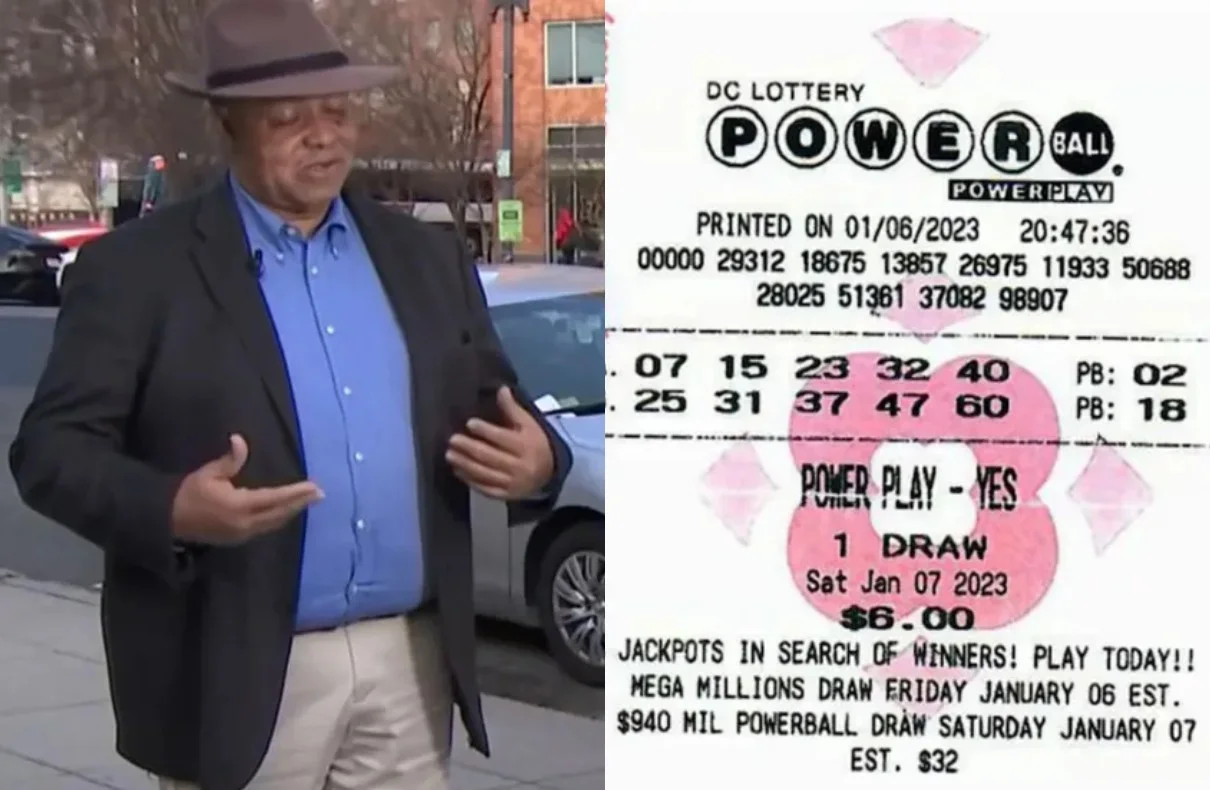
The world of lotteries is filled with excitement and anticipation, as millions of people try their luck in the hopes of winning life-changing jackpots. However, what happens when a player believes they have won a massive prize, only to be told it was all a mistake?
This is the story of John Cheeks, a Washington DC man who thought he had hit the jackpot with a Powerball ticket worth $340 million. In this article, we will explore the controversy surrounding his denied win and the legal battle that ensued.
In January 2023, John Cheeks purchased a Powerball ticket, carefully selecting numbers based on his family’s birthdates. Little did he know that this ticket would become the center of a heated dispute. The jackpot had soared to an incredible $340 million, making it a highly coveted prize for lottery enthusiasts.
After the live drawing on January 7, Cheeks decided to check his numbers on the DC Lottery’s website. To his astonishment, the numbers displayed on the website matched his ticket. Excited but composed, he reached out to a friend, took a picture of the ticket, and went to sleep, unaware of the rollercoaster ride awaiting him.
Sydney Sweeney’s Custom Designed Ford Mustang GT Giveaway
The next day, Cheeks attempted to redeem his ticket at a licensed retailer, only to discover that none of his numbers matched the ones drawn during the live Powerball broadcast. Perplexed and disappointed, he decided to visit the DC Office of Lottery and Gaming prize center for further clarification.
To his disbelief, a claims agent at the prize center bluntly told him, “Hey, this ticket is no good. Just throw it in the trash can.” Cheeks, taken aback by the casual dismissal of his potential life-changing win, refused to discard the ticket. Instead, he sought legal recourse to challenge the decision that shattered his dreams.
According to court documents, Powerball and the DC Lottery attribute the confusion to a technical error. A digital advertising agency called Taoti Enterprises, responsible for managing the DC Lottery’s website, claimed that on January 6, 2023, a quality assurance team accidentally posted a set of test Powerball numbers on the live website.
These test numbers coincidentally matched Cheeks’ chosen numbers. The incorrect numbers remained on the website for three days before being corrected. The lottery officials argue that the numbers posted online did not align with the actual numbers drawn during the live Powerball event.
Unsatisfied with this explanation, Cheeks enlisted the help of attorney Richard Evans and filed a lawsuit against Powerball and the DC Lottery. The lawsuit comprises eight separate counts, including breach of contract, negligence, infliction of emotional distress, and fraud. Cheeks seeks damages equivalent to the full jackpot prize, plus the interest he would have earned on it each day, totaling $340 million.
Newton Teachers Stand Strong, Ready to Strike for a Brighter Future
Cheeks’ attorney, Richard Evans, believes that this case raises crucial questions about the integrity and accountability of lottery operations. He argues that institutions like Powerball and the DC Lottery, which promise life-changing opportunities, must have robust safeguards in place to prevent errors like the one that allegedly occurred in this case.
Evans emphasizes that even if a mistake was made, the lottery should be held accountable for the consequences. He questions how such errors can be rectified and what measures can be implemented to ensure fairness and transparency in lottery operations.
This is not the first time a lottery has faced controversy due to mistaken numbers. In November 2023, Iowa lottery officials admitted to a “human reporting error” that led to the incorrect posting of numbers on their website. As a result, some ticket holders were able to claim prizes ranging from $4 to $200.
The outcome of this case could set a precedent for how lottery operators handle similar situations in the future. It will also impact public perception of the fairness and trustworthiness of the lottery system.
The odds of winning a Powerball jackpot are incredibly slim, with odds estimated to be about one in 292.2 million. To put it into perspective, the chances of being struck by lightning in the next year are approximately 1 in 1.22 million, according to the US National Weather Service.
Michigan vs Washington: Clash of the Undefeated
Despite the astronomical odds, millions of people continue to play the lottery, fueled by the hope of a life-changing win. For John Cheeks, that dream was shattered due to what he believes was a mistake made by the lottery officials. His case raises important questions about the responsibility of lottery operators and the impact of errors on players’ lives.
John Cheeks’ lawsuit against Powerball and the DC Lottery is ongoing. The next hearing in the case is scheduled for February 23. The outcome of this legal battle will determine whether Cheeks will receive the $340 million jackpot he believes is rightfully his.
As the controversy unfolds, it serves as a reminder that behind the glitz and glamour of multimillion-dollar jackpots, there are real people with hopes and dreams at stake. The integrity of lottery operations and the responsibility of operators to their players are crucial factors that should never be overlooked.
The story of John Cheeks and his denied Powerball jackpot highlights the fragility of dreams and the complexities of the lottery system. While the odds of winning a jackpot are slim, players invest their hopes and money with the belief that the system is fair and transparent.
The outcome of this lawsuit will not only impact John Cheeks’ life but also shed light on the accountability of lottery operators and the safeguards in place to prevent errors. As the legal battle continues, the controversy surrounding the $340 million mistake serves as a stark reminder that even multimillion-dollar jackpots can be subject to human error.
